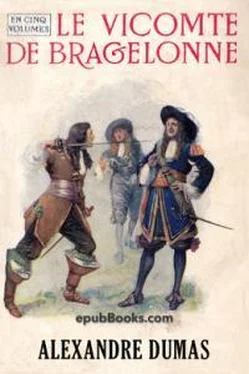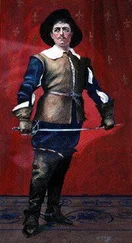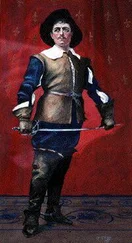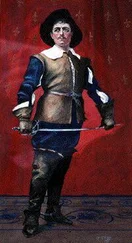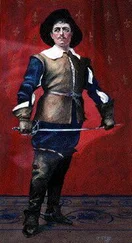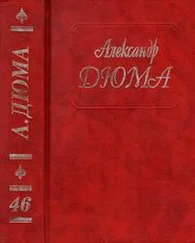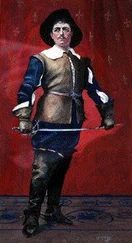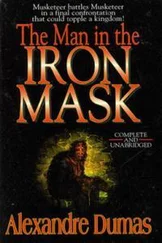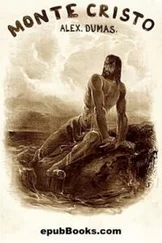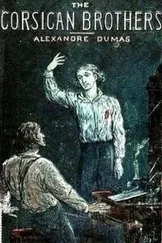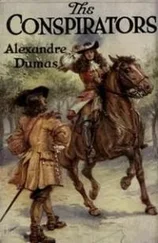The Vicomte De Bragelonne
Alexandre Dumas
Towards the middle of the month of May, in the year 1660, at nine o’clock in the morning, when the sun, already high in the heavens, was fast absorbing the dew from the ramparts of the castle of Blois, a little cavalcade, composed of three men and two pages, re–entered the city by the bridge, without producing any other effect upon the passengers of the quay beyond a first movement of the hand to the head, as a salute, and a second movement of the tongue to express, in the purest French then spoken in France: "There is Monsieur returning from hunting." And that was all.
Whilst, however, the horses were climbing the steep acclivity which leads from the river to the castle, several shop–boys approached the last horse, from whose saddle–bow a number of birds were suspended by the beak.
On seeing this, the inquisitive youths manifested with rustic freedom their contempt for such paltry sport, and, after a dissertation among themselves upon the disadvantages of hawking, they returned to their occupations; one only of the curious party, a stout, stubby, cheerful lad, having demanded how it was that Monsieur, who, from his great revenues, had it in his power to amuse himself so much better, could be satisfied with such mean diversions.
"Do you not know," one of the standers–by replied, "that Monsieur’s principal amusement is to weary himself?"
The light–hearted boy shrugged his shoulders with a gesture which said as clear as day: "In that case I would rather be plain Jack than a prince." And all resumed their labors.
In the meanwhile, Monsieur continued his route with an air at once so melancholy and so majestic, that he certainly would have attracted the attention of spectators, if spectators there had been; but the good citizens of Blois could not pardon Monsieur for having chosen their gay city for an abode in which to indulge melancholy at his ease, and as often as they caught a glimpse of the illustrious ennuye, they stole away gaping, or drew back their heads into the interior of their dwellings, to escape the soporific influence of that long pale face, of those watery eyes, and that languid address; so that the worthy prince was almost certain to find the streets deserted whenever he chanced to pass through them.
Now, on the part of the citizens of Blois this was a culpable piece of disrespect, for Monsieur was, after the king—nay, even perhaps, before the king—the greatest noble of the kingdom. In fact, God, who had granted to Louis XIV., then reigning, the honor of being son of Louis XIII., had granted to Monsieur the honor of being son of Henry IV. It was not then, or, at least, it ought not to have been, a trifling source of pride for the city of Blois, that Gaston of Orleans had chosen it as his residence, and held his court in the ancient Castle of the States.
But it was the destiny of this great prince to excite the attention and admiration of the public in a very modified degree wherever he might be. Monsieur had fallen into this situation by habit.
It was not, perhaps, this which gave him that air of listlessness. Monsieur had already been tolerably busy in the course of his life. A man cannot allow the heads of a dozen of his best friends to be cut off without feeling a little excitement; and as, since the accession of Mazarin to power, no heads had been cut off, Monsieur’s occupation was gone, and his morale suffered from it.
The life of the poor prince was then very dull. After his little morning hawking–party on the banks of the Beuvron, or in the woods of Cheverny, Monsieur crossed the Loire, went to breakfast at Chambord, with or without an appetite, and the city of Blois heard no more of its sovereign lord and master till the next hawking–day.
So much for the ennui extra muros; of the ennui of the interior we will give the reader an idea if he will with us follow the cavalcade to the majestic porch of the Castle of the States.
Monsieur rode a little steady–paced horse, equipped with a large saddle of red Flemish velvet, with stirrups in the shape of buskins; the horse was of a bay color; Monsieur’s pourpoint of crimson velvet corresponded with the cloak of the same shade and the horse’s equipment, and it was only by this red appearance of the whole that the prince could be known from his two companions, the one dressed in violet, the other in green. He on the left, in violet, was his equerry; he on the right, in green, was the grand veneur.
One of the pages carried two gerfalcons upon a perch, the other a hunting–horn, which he blew with a careless note at twenty paces from the castle. Every one about this listless prince did what he had to listlessly.
At this signal, eight guards, who were lounging in the sun in the square court, ran to their halberts, and Monsieur made his solemn entry into the castle.
When he had disappeared under the shades of the porch, three or four idlers, who had followed the cavalcade to the castle, after pointing out the suspended birds to each other, dispersed with comments upon what they saw: and, when they were gone, the street, the palace, and the court, all remained deserted alike.
Monsieur dismounted without speaking a word, went straight to his apartments, where his valet changed his dress, and as Madame had not yet sent orders respecting breakfast, Monsieur stretched himself upon a chaise longue, and was soon as fast asleep as if it had been eleven o’clock at night.
The eight guards, who concluded their service for the day was over, laid themselves down very comfortably in the sun upon some stone benches; the grooms disappeared with their horses into the stables, and, with the exception of a few joyous birds, startling each other with their sharp chirping in the tufted shrubberies, it might have been thought that the whole castle was as soundly asleep as Monsieur was.
All at once, in the midst of this delicious silence, there resounded a clear ringing laugh, which caused several of the halberdiers in the enjoyment of their siesta to open at least one eye.
This burst of laughter proceeded from a window of the castle, visited at this moment by the sun, that embraced it in one of those large angles which the profiles of the chimneys mark out upon the walls before mid–day.
The little balcony of wrought iron which advanced in front of this window was furnished with a pot of red gilliflowers, another pot of primroses, and an early rose–tree, the foliage of which, beautifully green, was variegated with numerous red specks announcing future roses.
In the chamber lighted by this window, was a square table, covered with an old large–flowered Haarlem tapestry; in the center of this table was a long–necked stone bottle, in which were irises and lilies of the valley; at each end of this table was a young girl.
The position of these two young people was singular; they might have been taken for two boarders escaped from a convent. One of them, with both elbows on the table, and a pen in her hand, was tracing characters upon a sheet of fine Dutch paper; the other, kneeling upon a chair, which allowed her to advance her head and bust over the back of it to the middle of the table, was watching her companion as she wrote, or rather hesitated to write.
Thence the thousand cries, the thousand railleries, the thousand laughs, one of which, more brilliant than the rest, had startled the birds in the gardens, and disturbed the slumbers of Monsieur’s guards.
We are taking portraits now; we shall be allowed, therefore, we hope, to sketch the two last of this chapter.
The one who was leaning in the chair—that is to say, the joyous, laughing one—was a beautiful girl of from eighteen to twenty, with brown complexion and brown hair, splendid, from eyes which sparkled beneath strongly–marked brows, and particularly from her teeth, which seemed to shine like pearls between her red coral lips. Her every movement seemed the accent of a sunny nature; she did not walk—she bounded.
Читать дальше
